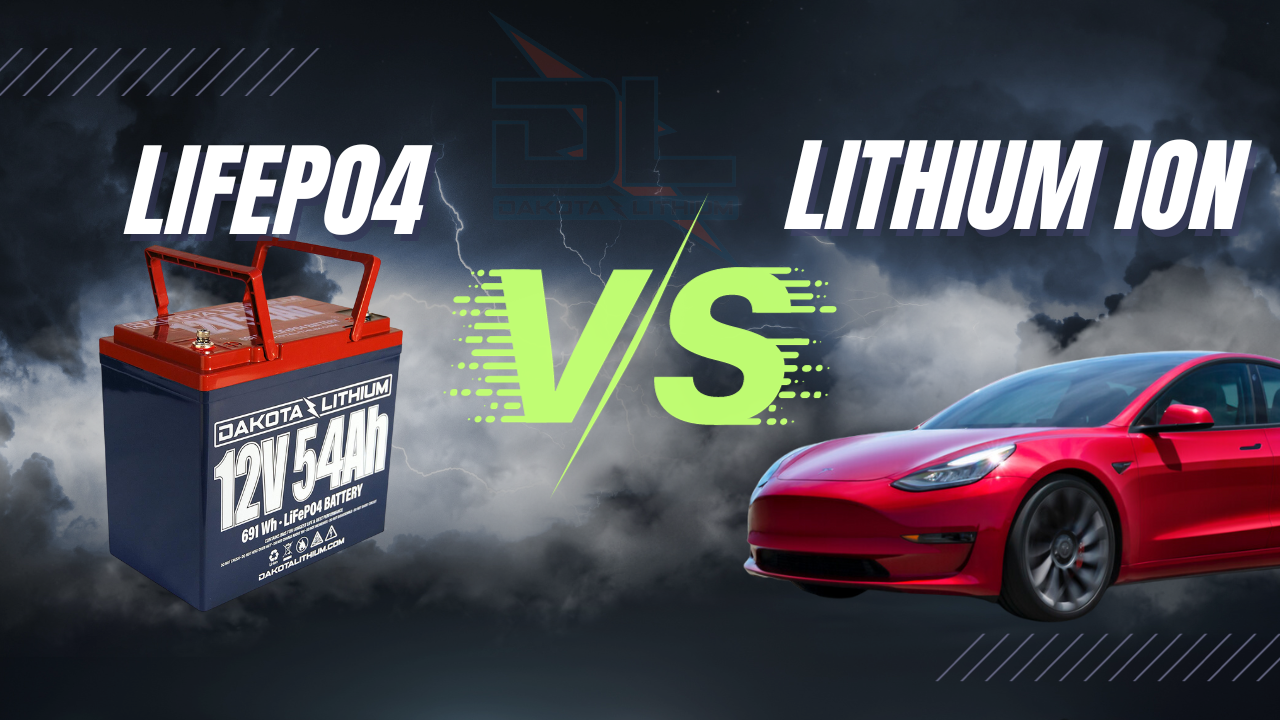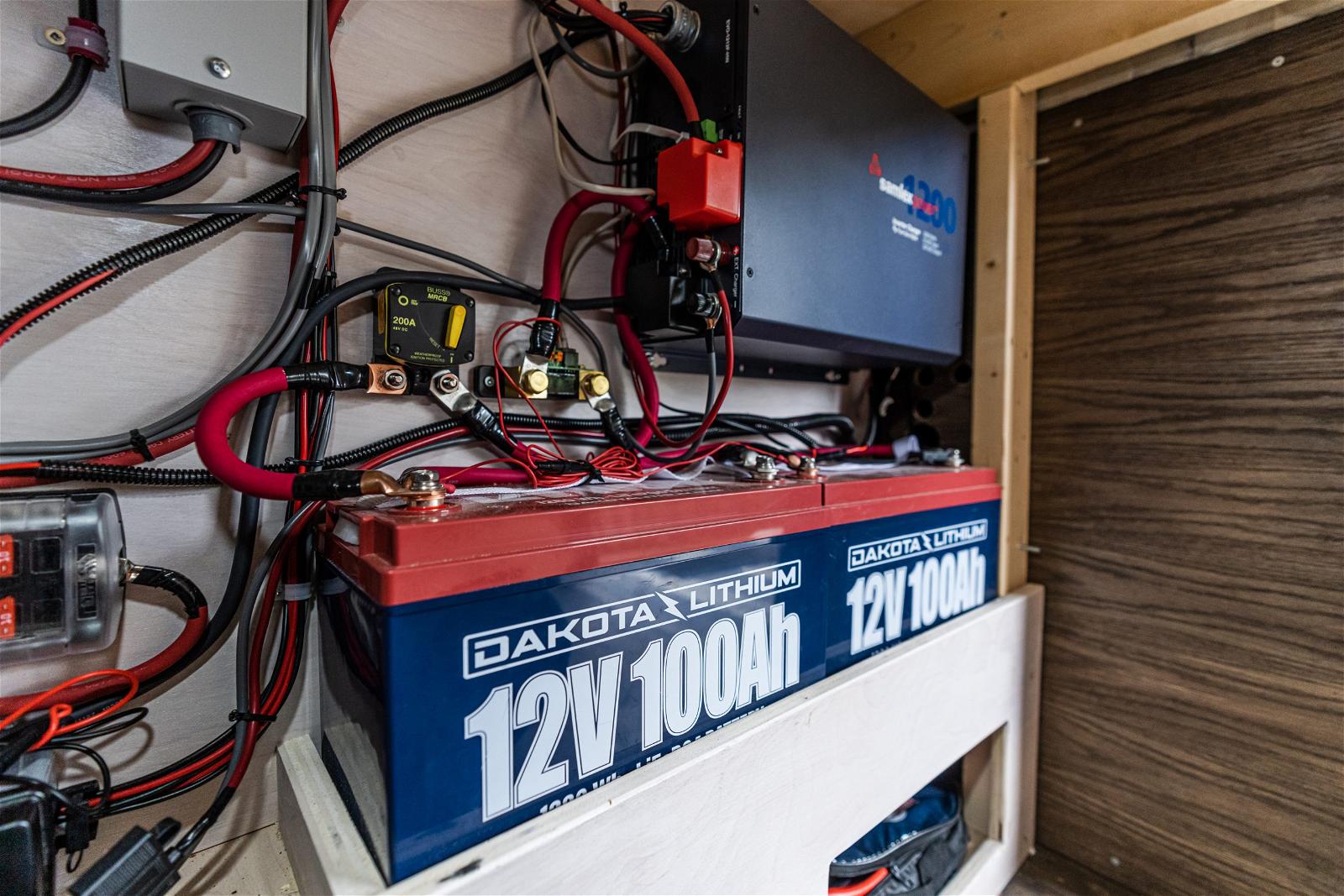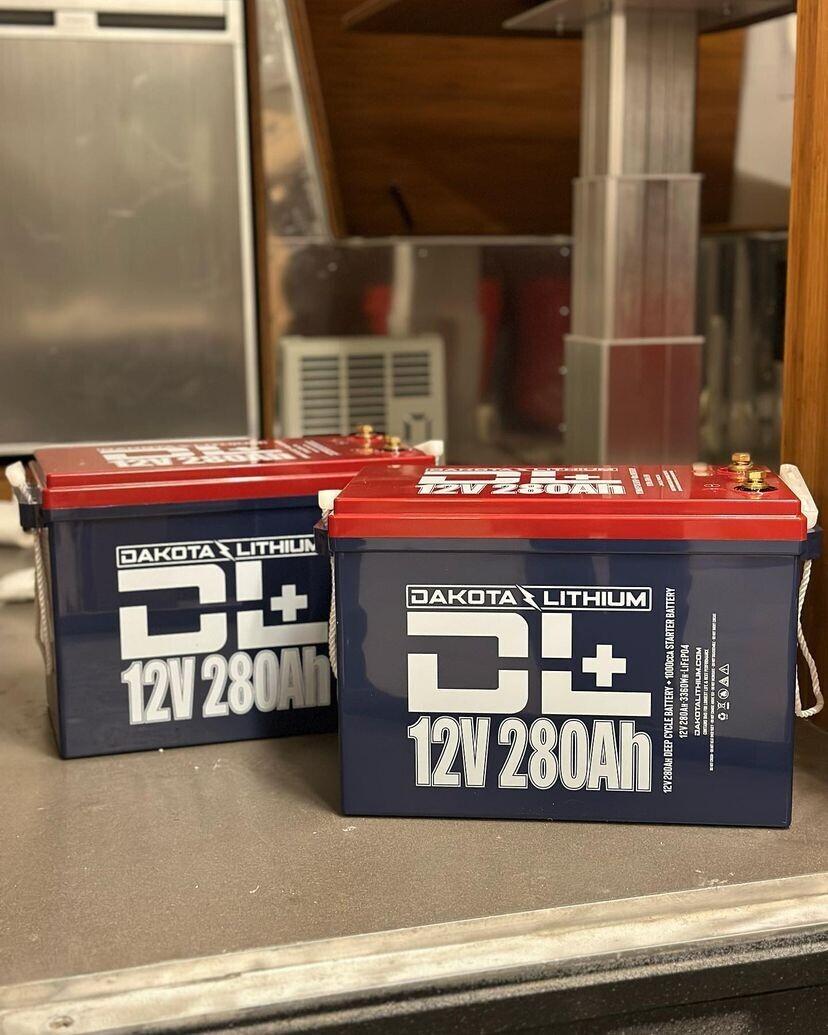LiFePO4 vs. Lithium Ion Batteries
Lithium batteries have revolutionized the portable electronics industry, contributed to the rise of electric vehicles, and are increasingly used in renewable energy storage systems due to their high energy density and rechargeability.

LifePO4 vs. Lithium Ion Batteries
The Difference Between Lithium Batteries and Lead-Acid Batteries
Lead-acid and lithium batteries are two distinct types of rechargeable batteries, each with its characteristics, advantages, and disadvantages. Here are the key differences between these two types of batteries:
1. Chemistry – Lead-acid batteries use lead oxide. The chemical reactions involve the conversion of lead and lead dioxide into lead sulfate during discharge and the reverse during charging. Lithium batteries use various lithium-based chemistries, such as lithium-ion (Li-ion), lithium iron phosphate (LiFePO4), lithium polymer (LiPo), and others. The specific chemistry used in a lithium battery can affect its performance characteristics.
2. Energy Density – Lead-acid batteries have lower energy density than lithium batteries, which means they store less energy for a given size and weight.
3. Weight – Lead-acid batteries are heavy due to the weight of the lead plates and the electrolyte. They are not suitable for applications where weight is a critical factor.
4. Cycle Life – Lithium batteries generally have a longer cycle life, often lasting thousands of cycles. This makes them more suitable for long-term and high-cycle applications, such as electric vehicles and solar energy storage.
5. Charge and Discharge Efficiency – Lithium batteries are more efficient in terms of charge and discharge, with less energy loss as heat. This efficiency contributes to their longer cycle life and faster charging capabilities.
6. Maintenance – Lithium batteries are virtually maintenance-free, without water checks or other routine maintenance tasks.
7. Voltage Stability – Lead-acid batteries have relatively stable voltage characteristics, with a gradual voltage drop as they discharge. In contrast, lithium batteries maintain a more constant voltage until they are near the end of their discharge cycle, where the voltage drops more rapidly.
The choice between lead-acid and lithium batteries depends on the application’s requirements. Lead-acid batteries are still used in traditional applications like automotive starting batteries and standby power systems. In contrast, lithium batteries are preferred in portable electronics, electric vehicles, and renewable energy storage due to their higher energy density, lighter weight, longer cycle life, and overall efficiency.
However, one of the most important things to know is that several different lithium batteries exist. The right one should be picked for the proper application – for example, Dakota marine lithiums for boats and Lithium cobalt oxide batteries for consumer electronics.

Dakota Lithium 12V 100Ah Installation
Among the most commonly used lithium batteries are LiFePO4 (Lithium Iron Phosphate) and lithium-ion. There are two types of rechargeable batteries, each with its characteristics, advantages, and disadvantages. Here’s a comparison between the two:
- Chemistry:
-
- LiFePO4: These batteries use lithium iron phosphate as the cathode material. The iron-phosphate chemistry is known for its stability and safety.
-
- Lithium-Ion: Lithium-ion batteries encompass a wide range of chemistries, including lithium cobalt oxide (LiCoO2), lithium manganese oxide (LiMn2O4), and lithium nickel cobalt manganese oxide (NMC). Each of these chemistries has slightly different characteristics.
- Safety:
-
- LiFePO4: LiFePO4 batteries are considered safer than many other lithium-ion chemistries. They are less prone to thermal runaway and have higher thermal stability due to their lower risk of overheating or catching fire.
- Lithium-Ion: The safety of lithium-ion batteries can vary depending on the specific chemistry. Some lithium-ion batteries, like LiCoO2, have been known to be less stable and more prone to overheating.
- Energy Density:
-
- LiFePO4: LiFePO4 batteries generally have a lower energy density than other lithium-ion chemistries. This means they store less energy for the same physical size and weight.
-
- Lithium-Ion: Lithium-ion batteries can offer higher energy density, making them a preferred choice for applications where space and weight are critical, such as in consumer electronics.
- Cycle Life:
-
- LiFePO4: LiFePO4 batteries tend to have a longer cycle life, which means they can be charged and discharged more times before their capacity significantly degrades. They are known for lasting several thousand cycles.
-
- Lithium-Ion: The cycle life of lithium-ion batteries varies by chemistry, but generally, they have a shorter cycle life than LiFePO4 batteries.
Charging and Discharging Performance:
-
- LiFePO4: LiFePO4 batteries can provide relatively high discharge currents, making them suitable for applications that require high power outputs.
- Lithium-Ion: Depending on the specific chemistry, lithium-ion batteries can have varying discharge performance. Some are better suited for high-power applications, while others are optimized for energy capacity.
Cost:
-
- LiFePO4: LiFePO4 batteries are often more expensive than other lithium-ion batteries due to the cost of the raw materials used in their construction.
- Lithium-Ion: The cost of lithium-ion batteries can vary widely based on the specific chemistry, size, and manufacturing processes.
Environmental Impact:
-
- LiFePO4: LiFePO4 batteries are considered more environmentally friendly due to their non-toxic and non-hazardous materials, such as iron and phosphate.
-
- Lithium-Ion: Some lithium-ion chemistries, particularly those containing cobalt, can have environmental concerns due to the mining and disposal of cobalt, which can have negative ecological and social impacts.
The choice between LiFePO4 and lithium-ion batteries depends on the application’s requirements. LiFePO4 is favored for its safety and long cycle life and is commonly used in applications like electric vehicles, solar energy storage, and backup power systems.
Lithium Iron Phosphate (LiFePO4) batteries have several advantageous characteristics that make them well-suited for various applications. Some common uses for LiFePO4 batteries include:
Electric Vehicles (EVs) and Hybrid Electric Vehicles (HEVs) – are increasingly used in electric and hybrid vehicles due to their high energy density, long cycle life, and safety features. These batteries help power the car and offer a more extended driving range compared to some other lithium-ion chemistries.
Solar Energy Storage – used to store energy generated by solar panels for later use. They can be installed in residential or commercial settings to keep excess energy during the day for use at night or during periods of low sunlight.
Uninterruptible Power Supply (UPS) Systems – employed in UPS systems to provide backup power during electrical outages. Their long cycle life and reliability make them suitable for ensuring continuous power supply to critical equipment and data centers.
Electric Bicycles (E-bikes) – used in electric bicycles to provide power for propulsion. They are preferred due to their high cycle life, lightweight design, and enhanced safety features.
Marine and RV Applications – Dakota Marine LiFePO4 batteries are used in boats, yachts, and recreational vehicles (RVs) as a reliable and efficient power source for lighting, appliances, and other onboard equipment.
Golf Carts – many golf carts and electric utility vehicles use LiFePO4 batteries for their power source. These batteries provide consistent performance and longer lifespan, reducing the need for frequent replacements.
Renewable Energy Systems – used in off-grid and grid-tied renewable energy systems like wind turbines to store and release energy as needed. They are valued for their durability and high charge/discharge efficiency.
Backup Power for Home and Office – can be used as backup power sources for homes and small businesses to ensure continuous electricity during power outages. They are often combined with inverters to supply power to essential appliances.
Remote Monitoring and Telemetry Systems – employed in remote monitoring equipment and telemetry systems, where reliability and long-term operation in isolated locations are critical.
Medical Devices – some medical devices, such as portable defibrillators, rely on LiFePO4 batteries for their power source. The batteries’ long cycle life and safety features are critical in healthcare applications.
Electric Scooters – used in electric scooters and mopeds due to their lightweight and compact design, making them ideal for urban transportation.
Emergency Lighting – used in emergency lighting systems to provide reliable and long-lasting illumination during power failures.
LiFePO4 batteries are favored in these applications because of their long cycle life (often thousands of cycles), excellent thermal stability, safety features, and lower environmental impact compared to some other lithium-ion battery chemistries. These qualities make them a reliable choice for various power storage and delivery needs.
Lithium-ion batteries are more diverse and may be preferred in applications where energy density and cost are primary concerns, such as consumer electronics

The DL+ 12V 280Ah battery is a drop in replacement for 4D, 8D, and Marine Group 31batteries. With 3X the usable power, 5X the lifespan, and half the weight it is the ultimate battery for RVs, Boats, and off grid applications
Josh Taylor – SaltyScales